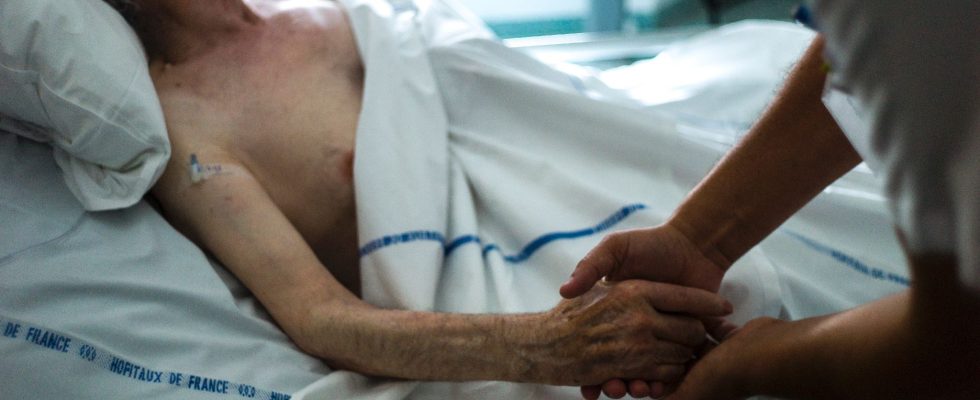White smoke comes out of the conclave. After three months of deliberations, the Citizens’ Convention on the end of life voted by majority, this Sunday, April 2, to allow euthanasia or assisted suicide. “Access to active assistance in dying must be open”, ruled its 184 members drawn by lot from among volunteers aged 18 to 87, in a report supposed to enlighten the Head of State on this subject.
A “yes” accompanied by “many nuances”, formulated after 27 days of investigation into the question. Since the beginning of the year, these citizens from all walks of life have questioned most of the people concerned by the subject of the end of life: patients, caregivers, scientists or even philosophers. “For the first time, we hear from citizens who have no relationship of interest”, welcomed this morning on France info Claire Thoury, the president of the governance committee of the citizens’ convention.
The French people gathered in this agreement on the end of life therefore mostly felt that the current end-of-life framework was not suitable. Fixed by the Claeys-Leonetti law of 2016, the current legislation only authorizes “prolonged and continuous sedation”, in other words a permanent plunge into unconsciousness, for patients in a desperate state in the short term and whose suffering is intolerable. . Before the citizens’ convention, a report by the Ethics Committee (CCNE) had already paved the way for changes, while the system is very little used.
Admittedly, the Convention emphasizes “the absence of satisfactory responses in the current framework for certain situations”, but it also insists on the concrete reality of “unequal access to end-of-life support”. She also considers that the patient should not benefit from a form of assisted dying if he has not received in-depth support, and he has not been able to express his informed will at any time. What to do when a patient is no longer able to say what his choice is? “The discernment of the person is an essential condition”, it is written.
Who kills?
The report cites the different modalities of the end of life without deciding between euthanasia – implemented in Belgium or the Netherlands – and assisted suicide – as in Switzerland, where the person kills himself. The majority of participants express themselves, in fact, either to legalize the two possibilities indiscriminately, or to allow assisted suicide and authorize euthanasia in more restricted cases. In any case, the Convention insists on setting up a complex process, with numerous safeguards.
In a report submitted on Saturday, the College of Physicians said it was “unfavorable” to any “active participation” of practitioners, explaining that it is not possible to “deliberately cause the death of a patient” , while reaffirming the “systematic” need to participate in supporting patients in their reflection on this subject. He also calls for the new law, if successful, to protect doctors. The Citizens’ Convention adds that caregivers must have a “conscience clause” allowing them to refuse to perform an act of euthanasia or assisted suicide.
Another very sensitive point: the situation of children and adolescents at the end of life. “On the question of access to active assistance in dying for minors, opinions remain very divided,” admits the report.
Development of palliative care
In addition to the highly publicized debate on euthanasia, the bulk of the report is mainly devoted to recommendations on possible improvements within the current framework, in particular on palliative care. The Convention thus calls for an increase in these public budgets, the inclusion of training on them for all medical students, and the guarantee of their access throughout France. Many departments currently do not have a dedicated unit.
It also emphasizes the unconditional possibility of choosing one’s place of death, which requires in particular the more marked development of palliative care units at home. Finally, she mentions the need to encourage the French to write their advance directives, which allow everyone to set down their wishes in writing in terms of maintaining or interrupting treatment.
The uncertainty now relates to the concrete translation of these recommendations, and in particular the drafting of a new law. President Emmanuel Macron, who had in the past spoken out for a change in the law but now refrains from speaking out clearly, is due to receive the participants in the convention on Monday to say what follow-up he intends to give to their work. The situation is all the less legible since, in parallel with the Convention, the government has initiated its own work of reflection under the aegis of the Minister Delegate for Health, Agnès Firmin Le Bodo, and that in charge of “democratic renewal”. , Olivier Veran. In the end, Emmanuel Macron will decide.
